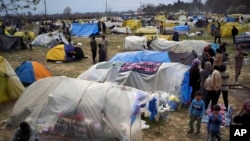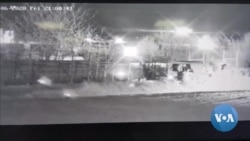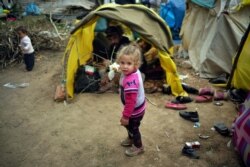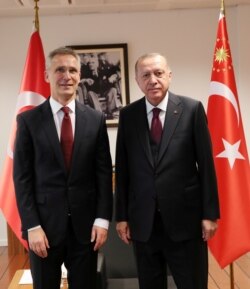As thousands of migrants continue to mass on the Turkey-Greece border, there were few signs of a breakthrough in emergency talks between Turkey and the European Union Monday.
Meanwhile five EU member states, Germany, Finland, France, Luxembourg and Portugal, agreed to take in unaccompanied migrant children who are stuck in Greece, though the numbers are unclear.
Ankara encouraged migrants to head to the Greek border last week, accusing the EU of failing to keep to the promises it made in a 2016 deal struck at the height of the European refugee crisis. Turkey is hosting around 4 million migrants, many of them escaping the war in Syria.
However, critics say most of those trying to cross into Greece are not from Syria and accuse Turkey of weaponizing migrants to blackmail Europe.
Turkish President Recep Tayyip Erdogan arrived in Brussels Monday evening for emergency talks with EU Commission President Ursula von der Leyen and European Council President Charles Michel. In a press conference after the meeting, there were few signs of a breakthrough.
“Migrants need support. Greece needs support, but also Turkey needs support,” von der Leyen told reporters at the press conference. “And this involves finding a path forward with Turkey. Clearly, we do have our disagreements, but we have spoken plainly and we have spoken openly to each other about these."
She added, "A lot goes back to the EU-Turkey statement of 2016, which remains valid. And we discussed today how to implement the missing pieces, to map it again, to analyze it, to have a common understanding (of) what is missing and what is already in place, and then to implement the missing elements."
The 2016 deal saw Europe give Turkey $6.7 billion in aid and a pledge to make it easier for Turks to travel to the EU, in return for Ankara agreeing to halt the flow of migrants. Turkey believes Europe has not upheld its end of the bargain, says Natalie Martin, an expert on EU-Turkey relations at Britain’s University of Nottingham.
“The visa liberalization has never materialized. And that’s been ticking on, that’s been a bit of a bugbear [issue] of theirs for the last couple of years. So this is where Erdogan has drawn a line in the sand and said we’re not going to keep stopping refugees coming over unless you honor those conditions.”
The EU says Turkey has not met the conditions to qualify for visa liberalization, especially on human rights. In reality Brussels is keen to do a deal, Martin says.
“I think it’s possible that if the EU makes the right noises about visa liberalization, and offered some more euros, that the deal could happen. So the 2016 deal is dead but it could be revitalized in other words. And actually that would probably be in Greece’s best interests, because the last thing they want is a lot more migrants crossing the Mediterranean, or indeed the land border,” Martin told VOA.
For migrants stuck on the border, including thousands of children, the misery continues. Many are sleeping in the open or in makeshift camps. Greece has stepped up security across the land and sea borders and anyone caught trying to breach the frontier is turned back.
A few do manage to get through and are quickly arrested. It’s not yet clear if they will be returned to Turkey or be allowed to remain on Greek soil, after Athens announced it will not accept any asylum applications for at least the next month.
Back home, Turkey’s president continues to ramp up the rhetoric for his domestic audience.
“Aren't women and their children suffering the most among the refugees swarming to land and sea borders, hoping to go to Europe?” President Erdogan told supporters at a rally Sunday in Istanbul. “And what is the West doing about this? Is the West's heart breaking over all of this? No. Is it raising its voice? No.”
Meanwhile the United Nations has voiced concern over the vulnerability of the migrant population to the COVID-19 virus outbreak. A team from the U.N. refugee agency is visiting camps along the Greek border to advise on hygiene and transmission prevention.








